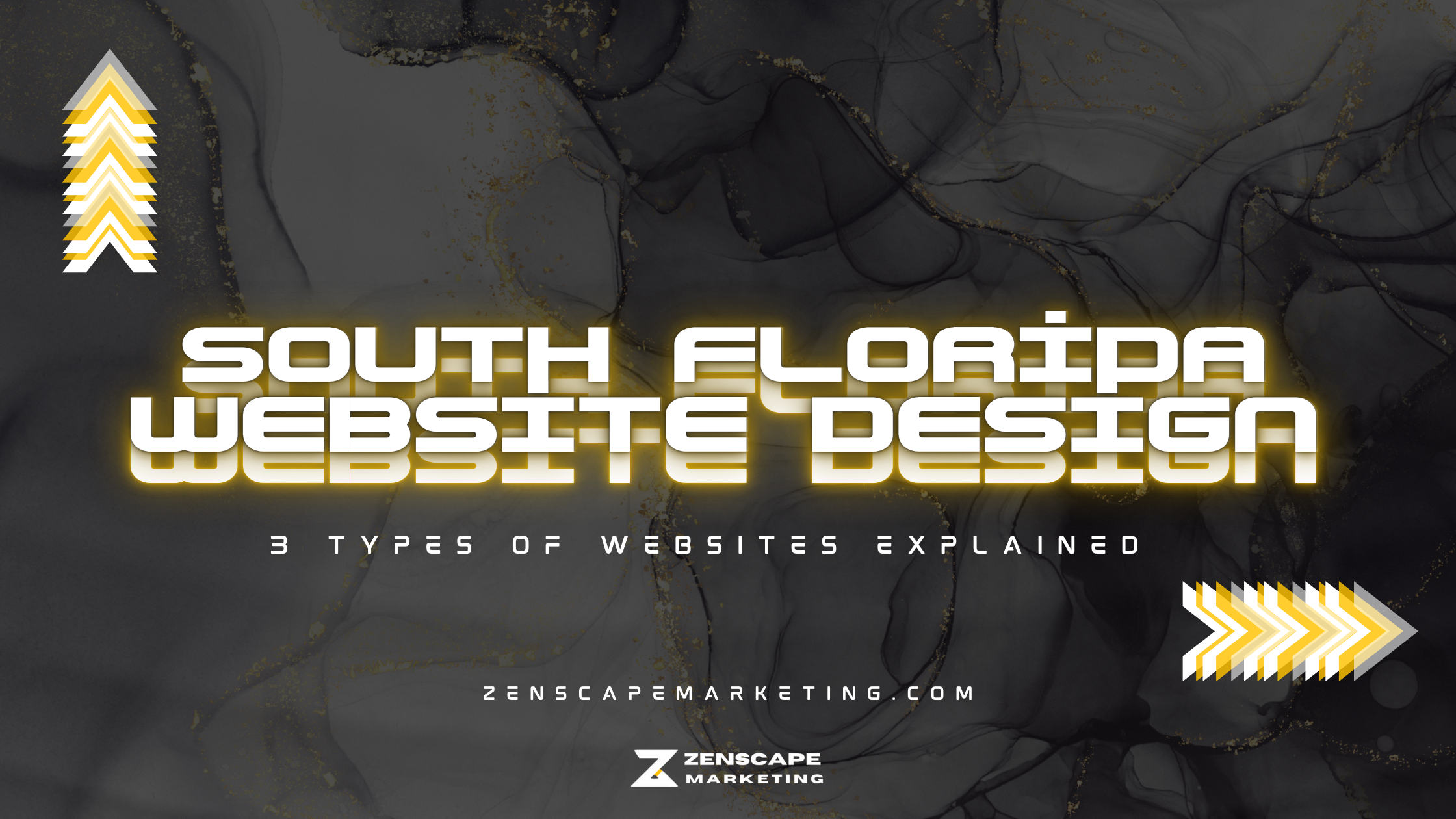When starting your website design project, one of the first decisions is identifying the correct type of website suited for your South Florida business. There are three main options – each with pros, cons, and ideal use cases: 1. Static Websites, 2. Dynamic Websites, 3. Ecommerce Websites. Understanding the core differences guides more innovative website planning and positions your digital presence for success. This guide will compare these three website types from a South Florida website design perspective.
Explore which platform aligns most with your business goals, resources, and capabilities.
1- Static Website Design
What Is It?
A static website is the most basic, traditionally consisting of flat .html pages with unchanging content. Pages are manually coded and then uploaded via FTP.
Examples: marketing sites, content hubs, landing pages.
Key Features:
Simple Coded Pages – Each page has a dedicated .html code. Updates require coding edits.
Limited Dynamic Elements – Static sites have little personalization, interactivity, or backend data.
Low Functionality – Contact forms and simple plugins may be integrated but limited.
Ideal When:
– Content changes infrequently after launch.
– Core focus is conveying info or capturing leads, not transactions.
– Tight budget and resources to build/maintain the site.
Pros:
– Fast initial setup and launch
– Meager hosting costs
– Search engine friendly, especially for content sites
Cons:
– Time-intensive manual updates
– No backend admin panel for management
– Lack of advanced functions and integrations
Our Recommendation:
Static sites work best for lean marketing and content-centric sites with very limited post-launch updates. Most businesses will progress beyond static sites’ constraints.
2- Dynamic Website Design
What Is It?
A dynamic website is built on a CMS (content management system) framework allowing non-technical users to update content.
Examples: small business sites, blogs, service business sites.
Key Features:
CMS-Powered – Built on CMS platforms like WordPress or Drupal.
Admin Dashboard – Users can log in and edit content without coding.
Modular Pages – Core templates display dynamic content pulled from databases.
Ideal When:
– Frequent content updates are required after launch.
– Centralized management by multiple non-technical users is needed.
– Seeking lightweight workflows, contact forms, blogs, etc.
Pros:
– User-friendly content editing through CMS
– Faster website updates
– Wide selection of CMS features, plugins, and themes
– Handles many small business needs
Cons:
– Can become complex if scaled too far
– Not optimized for large catalogs or transactions
– Security and performance needs active management
Our Recommendation:
Dynamic sites offer the best blend of affordability, features, and usability for many South Florida small businesses starting online.
3- Ecommerce Website Design
What Is It?
Purpose-built for selling products/services online with full cart and checkout capabilities.
Examples: online stores, product company sites, service bookings.
Key Features:
Robust Ecommerce Platform – Built on Shopify, Magento, WooCommerce, or custom ecommerce framework.
Product Catalog Management – Add/edit products, pricing, inventory, etc.
Shopping Cart/Checkout – Collect payments, taxes, shipping, and coupons.
CRM Integration – Connect customer data from marketing to sales.
Ideal When:
– The primary website goal is driving online sales and transactions.
– Large product inventory requires advanced management.
– Customers interact with accounts, orders, fulfillment, etc.
Pros:
– Complete ecommerce functionality out of the box
– Scales to enterprise-level order volumes
– Deep CRM, analytics and reporting
– Highly customizable features and integrations
Cons:
– Significant development costs for full customization
– Demands technical resources to run and secure
– Complicated additional compliance needs
Our Recommendation:
Ecommerce sites are the pinnacle for established South Florida product companies, retailers and online service booking ready to invest in robust functionality.
Choosing the Right Website Platform
Weighing the unique strengths of static sites, dynamic sites, and ecommerce provides direction for South Florida businesses at different stages.
– Early-stage companies just establishing an online presence often begin simply with a static website.
– Small businesses with blogging and contact needs quickly outgrow static capabilities, turning to user-friendly CMS dynamic sites.
– Product brands and retailers prepared to fulfill orders at scale require tailored ecommerce platforms.
While starting simple initially is fine, be prepared to graduate to more advanced website types as your digital presence and customer expectations evolve.
A trusted website design partner will guide you through each step, planning current projects with future extensibility in mind. They’ll also handle technical migrations smoothly as your South Florida business powers up online.
Launch the Right Website with South Florida Web Design Leaders
Ready to get your ideal South Florida website designed and built? The experts at Zenscape have deep expertise in creating custom websites of all types.
We’ve partnered with South Florida brands to craft beautifully designed, technically robust websites tailored to each client’s needs.
Our strategic approach combines:
– Planning future-focused website architecture
– Designing visually captivating and brand-aligned sites
– Building high-performance websites on proven technology
– Providing ongoing management, optimization, and support


